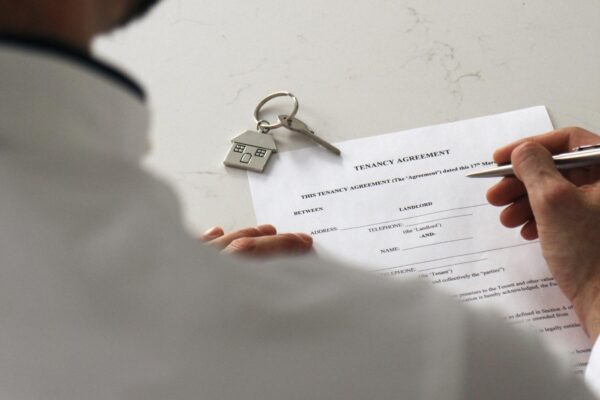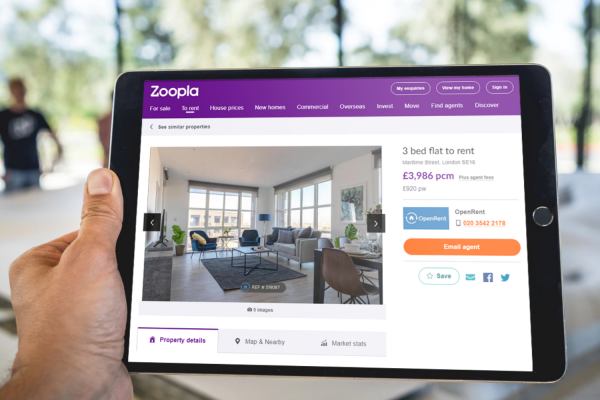There are plenty of benefits to renting your property without using a letting agent. As a DIY landlord, you can save hundreds, even thousands, of pounds each year by avoiding agency fees.
By having a direct relationship with your tenants, you can build trust over time. This often encourages tenants to stay longer, helping you cut down on the costs associated with turnover, which means even more savings for you.
Becoming a DIY landlord also means you won’t have to deal with disorganised letting agents who may prioritise their own financial interests. Plus, you’ll have the freedom to choose trusted tradespeople you know whenever any work needs doing on your property.
While letting a property without an agent does require handling most tasks yourself, these are generally straightforward, come with their own benefits, and will save you a significant amount of money.
Enjoy the benefits of self-managing your property without the hassle – let us show you how! Discover Rent Now
Finding tenants
As a DIY landlord, you have two main options for finding tenants: you can either advertise your property yourself or use an affordable advertising service like OpenRent.
OpenRent allows you to advertise your property on major portals like Rightmove, Zoopla, and other popular sites for just £49.
These are the platforms most tenants turn to when searching for their ideal rental home. Getting your property listed here is the single most important step you can take to attract tenants.
Our low-cost advertising service ensures your listing looks professional and is visible in all the right places, at the right time. It’s so effective that most DIY landlords secure a tenant in under a week on average!
Viewings
You don’t need to rely on an agent for viewings; you can easily handle them yourself, ask a friend or someone nearby, or use a professional viewings service.
Conducting viewings is straightforward if your rental property is empty. Simply arrange a convenient time to meet at the property and guide the prospective tenant around, highlighting all the positive features.
If your property is currently tenanted, be sure to inform your tenant in advance each time you plan to show it. Remember, it’s still their home, so expect the property to be reasonably tidy but “lived in”.
Be considerate about the timing of your viewings; it’s unfair to schedule them during dinner time or early on a Saturday morning.
For DIY landlords who live far from their rental property or have other commitments, you can ask a friend or relative to conduct a viewing for you.
If you don’t have anyone you trust nearby, consider using a professional viewings service. While there is a fee for this service, the savings you’ll achieve compared to using a letting agent can easily exceed £1,000 per tenancy.
You might also be interested in…
- All You Need to Know About Right to Rent Checks
- Guide to the Renters’ Rights Bill for Landlords 2025
- What Are the EPC Requirements for Landlords?
- Renting to Students: Guarantors, Advance Payments, HMO licence and more
- Holding Deposit, Tenancy Deposit, Rental Fees: Everything You Need to Know
Tenant referencing
While a letting agent may advertise your property, conduct viewings, and handle the referencing of potential tenants, the fees for these services can add up to hundreds of pounds. Agents typically charge around £70 to £80 for referencing alone.
While it’s essential to carry out reference checks, they don’t have to be so expensive.
At OpenRent we offer a tenant referencing service for an affordable price which includes comprehensive checks such as:
- credit assessments
- linked address and ID verification
- details on County Court Judgments (CCJs) and other court information
- affordability ratings
- income and employment checks
- a reference from a previous landlord
Writing a contract
You might be tempted to skip the paperwork if you have a willing and friendly new tenant. However, tenancy agreements are a legal necessity.
They protect both you and your tenant, and it’s always best to maintain a clear and professional landlord-tenant relationship.
If you’re using OpenRent’s advertising or referencing services, consider putting a little extra towards our secure tenancy creation service. It offers a top-quality tenancy agreement, with the added flexibility to include custom clauses tailored to your property.
Get unbeatable coverage on Rightmove, Zoopla, and other major property portals for just £49. Get Started
Collecting rent
It’s important to decide on the amount for the tenancy deposit (which can be a maximum of five weeks’ rent), the monthly rent, and the preferred payment method.
While most tenants are reliable, it’s a good idea to avoid relying on manual payments like cheques or bank deposits.
Instead, consider asking your tenant to set up a standing order. This way, they won’t need to remember to transfer the rent each month, making the process more convenient for everyone involved.
If you ever find yourself needing to remind tenants about rent, it can feel a bit awkward. Luckily, if you set up your tenancy with OpenRent, you can use our rent collection service.
This service sends gentle reminders to tenants about upcoming payments and automatically follows up if they miss a payment.
Managing repairs
In any tenancy, there are bound to be hiccups. You might find yourself dealing with a leaking water pipe or needing to organise your annual gas safety check and boiler service. Letting agents can seem convenient, promising to handle these issues for you without requiring your involvement.
However, some landlords find that agents can add to their stress. There may be instances where communication with tenants isn’t as effective as it could be, and you might feel out of the loop regarding important matters.
Additionally, the services of letting agents come at a cost – they often use tradespeople of their choosing, which can mean paying a premium for repairs. This can also leave you unsure about the quality of the work being done.
Unexpected events can lead to financial losses – cover your property with buildings and contents insurance today. Get a Quote Now
Balance your time and costs
Renting out your property without an agent is more manageable than you might think. As a DIY landlord, you have the option to handle everything yourself or seek assistance from cost-effective expert services like OpenRent.
By choosing the independent route, you can save a significant amount on fees that would otherwise go to a letting agent. If you decide to “do it yourself,” you’ll likely find the process quite straightforward.
However, some landlords prefer to work with an agent, willing to pay a premium to save time and avoid the perceived hassle of dealing directly with tenants.
It’s essential to balance your time and costs according to your own preferences and circumstances.



